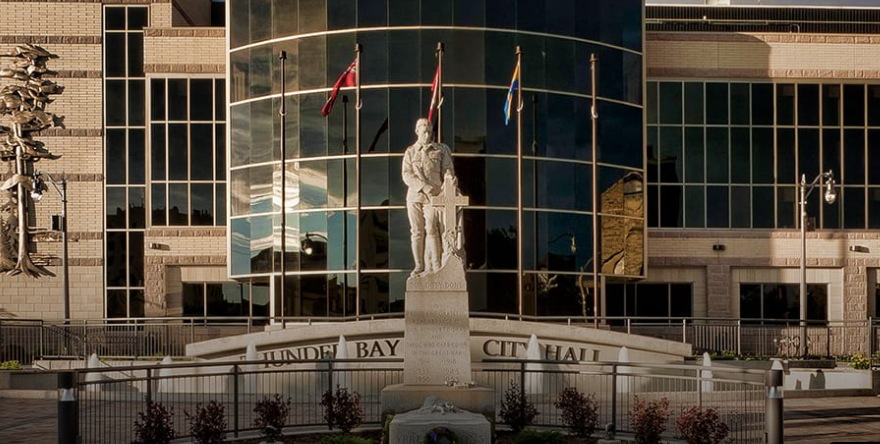THUNDER BAY – Monday’s meeting of city council was dominated by a difficult decision to cancel a large number of summer programs and keep facilities like outdoor pools and municipal campgrounds closed due to COVID-19.
Mayor Bill Mauro began the meeting on more optimistic footing, pointing to Premier Doug Ford’s recent reversal on regional reopening and hopeful signs of financial support for municipalities. Ford is now considering allowing regions of the province less hard hit by the pandemic to reopen sooner, Mauro pointed out.
But much of the rest of council’s agenda Monday served as a reminder that recovery is likely to be a long, difficult, and costly process even for a city spared the heaviest impacts of the pandemic.
City cancels summer programs, closes facilities
Facing a shortening runway to launch summer programs, the city opted to proactively cancel a number of seasonal staples, including all city-run summer events, and community events up to July 31. Outdoor pools, municipal campgrounds, and amusement rides at Chippewa and Centennial parks will remain closed for the year.
The city left the door open to running other programs, including most summer camps and the playgrounds program, as well as potentially opening splash pads. Those decisions will depend on when the province relaxes COVID-19 restrictions, among other factors.
Council stares down infrastructure deficit
A report on the progress of the city’s asset management plan highlighted the city’s chronic infrastructure deficit. The city’s own estimates indicate it’s falling more than $21 million behind each year on maintaining its existing infrastructure.
Councillors painted the issue as an existential challenge, while noting municipalities across the country face the same issue. Several suggested the city would need to reduce the number of assets it maintains, including parks, buildings, and sports fields.
Work on the asset management plan, mandated by the province to inform city planning and provincial and federal grant funding, currently involves creating an inventory of all significant city assets, their condition, and importance to the community. That phase will be completed next year, while the city will be required to develop a 10-year maintenance plan by 2024.
Report tracks city’s sustainability progress
Council received the 2019 annual report from EarthCare, the city’s advisory committee on sustainability. The report highlighted the city’s success in exceeding its corporate greenhouse gas (GHG) emissions reduction target for 2020.
Emissions from city operations are 26 per cent lower than a 2009 baseline, beating the target of a 20 per cent reduction. However, levels have stayed mostly constant since 2016, and acting sustainability coordinator Summer Stevenson told council there had been no significant emissions reductions in 2019.
Mayor Bill Mauro asked how much of the reductions before that time owed to decommissioning the city’s coal generating station, but an answer was not immediately available.
EarthCare is now at work assessing greenhouse gas emissions for the city as a whole, including residential and industrial sources. That work will inform the development of a Community Energy & Emissions Plan.
Councillors also discussed efforts to support the local food industry and to improve the city’s tree canopy.
Council moves to examine hosting evacuees
Council unanimously approved a motion from Coun. Mark Bentz to involve city council in decision-making on the hosting of evacuees from natural disasters.
Bentz maintained the decision not to offer Thunder Bay as a host city this year due to COVID-19 needed input from council, as it was a major issue with repercussions for the city’s relationships and reputation. The decision was made by the Municipal Emergency Control Group, made up of senior city staff and representatives from emergency services, health, education, and more.
City administration will report back to council on the issue by June 22.
Lead removal program report deferred
A vote on the creation of a program to assist homeowners with removing lead water pipes with subsidies was deferred. Mayor Bill Mauro said the city had not yet identified where funding for the program, which could cost nearly $500,000, would come from.
City administration expected the issue to return to the council table within the month of June.
Date set for Designated Truck Route debate
A decision may be in sight on an issue that has spurred debate and frustration at city hall for years. Council will debate the creation of a Designated Truck Route on June 22.
Consideration of the issue has been deferred most recently due to concerns over conflict of interest and the inability to find a date when all councillors would be present.
